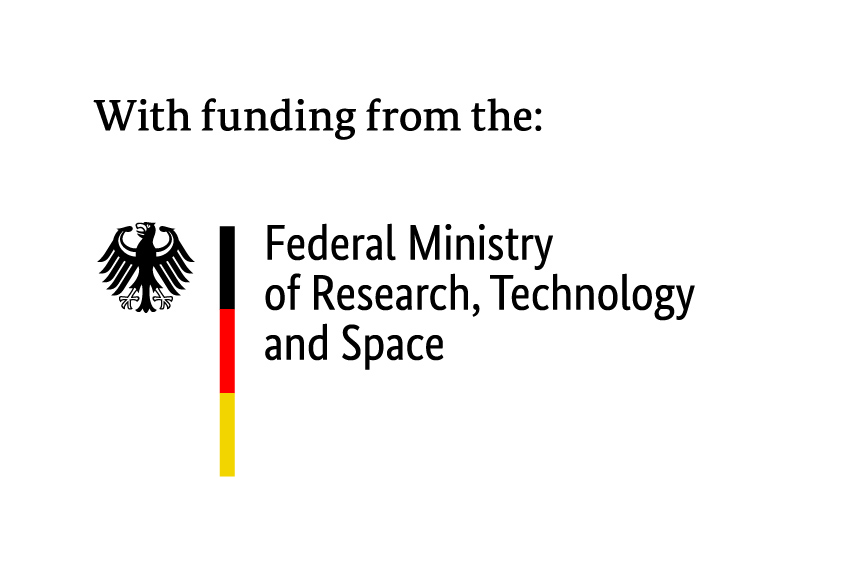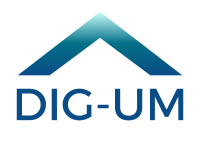Changes for page 2nd Workshop on Sustainability
Last modified by Angela Warkentin on 2025/07/16 15:13
From version 19.1
edited by Angela Warkentin
on 2025/03/11 10:24
on 2025/03/11 10:24
Change comment:
There is no comment for this version
To version 3.1
edited by Jan Bürger
on 2025/02/20 12:30
on 2025/02/20 12:30
Change comment:
Uploaded new attachment "Program Planning Meeting, Feb 19.pdf", version 1.1
Summary
-
Page properties (2 modified, 0 added, 0 removed)
-
Attachments (0 modified, 0 added, 1 removed)
Details
- Page properties
-
- Author
-
... ... @@ -1,1 +1,1 @@ 1 -XWiki. Angela_Warkentin1 +XWiki.JanBurger - Content
-
... ... @@ -1,246 +1,1 @@ 1 -== **2nd Workshop on Sustainability in the Digital Transformation of Basic Research on Universe & Matter (2025)** == 2 - 3 - 4 ----- 5 - 6 - 7 -=== **What happened so far: ** === 8 - 9 -* 2023: In-person Workshop:[[ https:~~/~~/indico.desy.de/event/37480/>>url:https://indico.desy.de/event/37480/]] 10 -* 2024: Follow up paper and online meetings 11 -** Publication:[[ https:~~/~~/arxiv.org/abs/2311.01169>>url:https://arxiv.org/abs/2311.01169]] Last sustainability workshop paper: [[https:~~/~~/doi.org/10.1140/epjs/s11734-024-01436-4>>url:https://doi.org/10.1140/epjs/s11734-024-01436-4]] 12 -** Online Discussion:[[ https:~~/~~/indico.desy.de/event/44490/>>url:https://indico.desy.de/event/44490/]] 13 -** Online Discussion:[[ https:~~/~~/indico.desy.de/event/45927/>>url:https://indico.desy.de/event/45927/]] 14 -* **2025: In-person Workshop: [[https:~~/~~/indico.desy.de/event/47133/>>url:https://indico.desy.de/event/47133/]] ** 15 -** **28 July - 1 August 2024** 16 -** **(Erholungsgesellschaft) Aachen** 17 - 18 -=== **Meeting documentation: ** === 19 - 20 -**First Meeting with the Program Committee 19.02.2025** 21 -Participation: Jan Bürger, Markus Demleitner, Günter Duckeck, Martin Erdmann, Benjamin Fischer, Martin Gasthuber, Thomas Kuhr, Judith Reindl, Markus Schumacher, Judith Steinfeld, Dwayne Spiteri, Achim Streit, Angela Warkentin, Sebastian Wozniewski 22 - 23 -* [[Brainstorming document>>https://docs.google.com/document/d/1S7DN9xc_zbogT9byt44xSCm0hpBDPFNy5b20U5a2HU8/edit?tab=t.0]] 24 -* [[Slides>>attach:Program Planning Meeting, Feb 19.pdf]] 25 -* [[attach:preparation-slides.pdf||target="_blank"]] 26 - 27 - 28 - 29 -**Second Meeting with the Program Committee 11.03.2025** 30 - 31 -* Tuesday, March 11 from 4 - 5:30 pm: [[https:~~/~~/rwth.zoom-x.de/j/65088391540>>https://rwth.zoom-x.de/j/65088391540]] 32 - 33 - 34 - 35 ----- 36 - 37 - 38 -== **Second Meeting with the Program Committee 11.03.2025** == 39 - 40 -=== **1. Regarding Goals ** === 41 - 42 - 43 -|(% style="width:268px" %)((( 44 -**Goals** 45 - 46 -**(Up to discussion on March, 11) ** 47 -)))|(% style="width:1019px" %)((( 48 - 49 -)))|((( 50 -Author / Contact (optional) 51 -))) 52 -|(% colspan="1" rowspan="2" style="width:268px" %)**Definition**|(% style="width:1019px" %)What exactly is meant by “sustainability”|Achim S., Judith R. 53 -|(% style="width:1019px" %) | 54 -|(% colspan="1" rowspan="2" style="width:268px" %)**Track Progress / Review**|(% style="width:1019px" %)What is the concrete progress since the last workshop, what worked, what not.|Thomas K, Judith R. 55 -|(% style="width:1019px" %) | 56 -|(% colspan="1" rowspan="4" style="width:268px" %)((( 57 -**Ideas / Ansätze** 58 -)))|(% style="width:1019px" %)Based on input from referees I think one topic is whether we should collect data to effectively represent progress| 59 -|(% style="width:1019px" %)What new ansatzes (//approaches//) exist, what should we try|Achim S. 60 -|(% style="width:1019px" %) | 61 -|(% style="width:1019px" %) | 62 -|(% colspan="1" rowspan="5" style="width:268px" %)**Concrete Recommendation for Action & Outlook **|(% style="width:1019px" %)((( 63 -Konkrete Empfehlungen ans BMBF bzw. Projekte als einige white papers. 64 - 65 -(//Concrete recommendations to the BMBF and projects in the form of white papers//) 66 -)))| 67 -|(% style="width:1019px" %)((( 68 -Formation of focus groups for the implementation of identified guidelines from multiple projects, beyond the workshop (e.g. Connect Workshop 2024) 69 -)))| 70 -|(% style="width:1019px" %)((( 71 -Prüfsteine für einen dritten Workshop, der die Umsetzung der Fokusgruppen überprüfen kann. 72 - 73 -//Criteria for a third workshop that can assess the implementation of the focus groups.// 74 -)))| 75 -|(% style="width:1019px" %)A paper detailing how to combat the practicalities of tackling sustainability issues (in Germany)| 76 -|(% style="width:1019px" %) | 77 - 78 - 79 - 80 -==== **Goals: ** ==== 81 - 82 -* Focus is on implementation: Last workshop was impulse, this should enable implementation by developing concrete action points. 83 -* Do we need a paper? How can the results be optimally prepared? 84 -* At the end, concrete measures should emerge and be recorded (e.g. white paper, without publication, but with the aim of disseminating the measures widely) 85 -* Concrete assignments: To present at DPG, concrete “tasks” with responsible persons (to be reported, e.g. to Overview Board or next year in the workshop) 86 - 87 - 88 - 89 - 90 - 91 -=== **2. Regarding Contents ** === 92 - 93 -* **Name for the Workshop: Currrently "**[[2nd Workshop on Sustainability in the Digital Transformation of Basic Research on Universe & Matter>>url:https://indico.desy.de/event/47133/]]" 94 - 95 - 96 - 97 -|((( 98 -**Topics ** 99 - 100 -**(Up to discussion on March, 11) ** 101 -)))|(% style="width:1011px" %)((( 102 -**What do we want to cover in terms of content? ** 103 - 104 -(//**Subgroups 2023:** Footprint, Dynamic Energy Supply, Hardware Lifetime, Hardware & Algorithms, Smart Data, Cultural Change, Autonomization, Inquiries & Dynamics, Algorithms & Software, Machine Models, Injected Intelligence, Workflows & Stakeholders//) 105 -)))|(% style="width:222px" %)Author / Contact (optional) 106 -|(% colspan="1" rowspan="2" %)((( 107 -CO2 / 108 - 109 -Footprint with regards to hardware 110 -)))|(% style="width:1011px" %)How to handle CO2-budget of the production of the hardware (+1)|(% style="width:222px" %)Achim Stahl, support by Markus Sch (may contact Öko Institut e.V.) 111 -|(% style="width:1011px" %)Ethical implications of Life Cycle analysis (where machines are made - where they end up)|(% style="width:222px" %) 112 -|(% rowspan="4" %)((( 113 -Operation of Data Centres / 114 - 115 -Use of Energy 116 -)))|(% style="width:1011px" %)Sustainable operation of compute and data centres |(% style="width:222px" %)Markus Sch. 117 -|(% style="width:1011px" %)How can we integrate datacentres/experiments with their environments|(% style="width:222px" %) 118 -|(% style="width:1011px" %)What metrics are we use to decide how clean energy is/ optimal time for greenest use of energy|(% style="width:222px" %) 119 -|(% style="width:1011px" %)Von Stromerzeugenden und Netzbetreibern Input bekommen, was wir eigentlich tun sollen. BnetzAgentur beiholen?|(% style="width:222px" %)(Raum1) 120 -|(% rowspan="3" %)((( 121 -Sustainable Programming & Implications / User 122 - 123 - 124 -)))|(% style="width:1011px" %)Sustainable programming is a topic frequently requested by the community. How can we drive this forward? |(% style="width:222px" %)Angela Warkentin 125 -|(% style="width:1011px" %)Ethical question: if software gets more efficient by factor n will then e.g. simualtion run factor n more or will stop after initial goal reached? |(% style="width:222px" %)Markus Schh. 126 -|(% style="width:1011px" %)Wie managen mir die Wirkungen auf die Nutzenden, so dass diese mitgehen? Wie können wir für diese Motivation schaffen?|(% style="width:222px" %)(Raum 1) 127 -|(% rowspan="4" %)Motivation & Ethics |(% style="width:1011px" %)Wie managen mir die Wirkungen auf die Nutzenden, so dass diese mitgehen? Wie können wir für diese Motivation schaffen?|(% style="width:222px" %) 128 -|(% style="width:1011px" %)Introductions to Ethics and/in Sustainability|(% style="width:222px" %) 129 -|(% style="width:1011px" %)UN sustainability points and the impact to physics|(% style="width:222px" %) 130 -|(% style="width:1011px" %)Sustainability Communication: how to spread motivation among scientists |(% style="width:222px" %) 131 -|(% rowspan="5" %)Politics & Stakeholder|(% style="width:1011px" %)Mit BMBF-Leuten darüber reden, wie wir unsere Erkenntnisse umgesetzt bekommen|(% style="width:222px" %)(Raum 1) 132 -|(% style="width:1011px" %)Allgemeiner: Leitlinien für konkretes Handeln mit den Stakeholdern ausarbeiten.|(% style="width:222px" %)(Raum 1) 133 -|(% style="width:1011px" %)Umgang mit politischen Zwängen (“wir gehen nicht nach Polen, weil deren Strom so dreckig ist” bzw. die Zurückweisung so einer Erwägung aus politischen Gründen)? (Or: If we fund it here we also want to run it here and not in Norway, Iceland ,... )|(% style="width:222px" %) 134 -|(% style="width:1011px" %)Political barriers to sustainability (local laws/regulations)|(% style="width:222px" %) 135 -|(% style="width:1011px" %)What does the BMBF expect? (Invite BMBF representative) |(% style="width:222px" %) 136 -|(% rowspan="4" %)Teaching & Science |(% style="width:1011px" %)In view of abilities of Humans versus Machines (see table below): how will ErUM science change in future|(% style="width:222px" %)Martin E. 137 -|(% style="width:1011px" %)Knowledge transfer, education, what concepts will stay to be important, what will be new|(% style="width:222px" %)Judith Reindl, Martin E. 138 -|(% style="width:1011px" %)Wie managen mir die Wirkungen auf die Nutzenden, so dass diese mitgehen? Wie können wir für diese Motivation schaffen?|(% style="width:222px" %) 139 -|(% style="width:1011px" %)Sustainability Communication: how to spread motivation among scientists |(% style="width:222px" %) 140 - 141 - 142 - 143 - 144 - 145 -=== **3. Regarding Timetable ** === 146 - 147 - 148 -* What should the program consist of? 149 -* Should we open the workshop for contributions (abstracts) or only include invited talks? 150 - 151 -**Ideas so far: ** 152 - 153 -* Talks, discussion and interactive parts 154 -** Interactive part: tutorial on sustainable programming 155 -* Inspiration talks for fostering our creativity, followed by the possibility to discuss and exchange. Results of the discussion could then be presented in short talks 156 -* Talks in the morning,** paper-writing sessions in the afternoon.** 157 -** Different sessions have different sections to work on in Overleaf 158 -** Paper writing / Results: One moderator per session, who is also responsible for detailed documentation 159 - 160 - 161 - 162 - 163 -=== === 164 - 165 -=== **4. Regarding Invitations / Speaker** === 166 - 167 - 168 -* ** **Find & Invite Experts from Organisations (CERN, DESY, BMBF): Anwendungsorientierte (application-oriented) Talks 169 - 170 - 171 - 172 -|((( 173 -**Topics ** 174 -)))|(% style="width:1011px" %)((( 175 - 176 -)))|(% style="width:222px" %)Author / Contact (optional) 177 -|(% colspan="1" rowspan="3" %)**General **|(% style="width:1011px" %)International sustainability projects in science (WLCG, EU, …)|(% style="width:222px" %) 178 -|(% style="width:1011px" %)Overview of ideas in SUSFECIT research network (proposal handed in 2024 ErumM Data call)|(% style="width:222px" %)Markus Schumacher 179 -|(% style="width:1011px" %) |(% style="width:222px" %) 180 -|(% colspan="1" rowspan="3" %)**Tracking Progress **|(% style="width:1011px" %)((( 181 -Paper presentation: "Quantifying imperfect cognition with realized information gain" 182 -)))|(% style="width:222px" %)Torsten Ensslin (Confirmed Participation) 183 -|(% style="width:1011px" %)Know your footprint: status and next steps |(% style="width:222px" %)KYF authors 184 -|(% style="width:1011px" %) |(% style="width:222px" %) 185 -|(% colspan="1" rowspan="2" %)((( 186 -**CO2 /** 187 - 188 -**Footprint with regards to hardware ** 189 -)))|(% style="width:1011px" %)Full life cycle assessment of c02 footprint (production, cooling water, disposal) |(% style="width:222px" %)could ask Öko-Institut e.V (Markus Sch,) or Matthias Wadenstein, WLCG 190 -|(% style="width:1011px" %) |(% style="width:222px" %) 191 -|(% rowspan="3" %)((( 192 -**Operation of Data Centres /** 193 - 194 -**Use of Energy** 195 -)))|(% style="width:1011px" %)((( 196 -Ecology: How computing centres fit into the local surroundings 197 - 198 -* Re-using waste heat to provide heat for farming: vegetables 199 -* Novel power sources for datacentres, building datacentres where power is being generated 200 -)))|(% style="width:222px" %) 201 -|(% style="width:1011px" %)Sustainability implementation at major research facilities e.g. CERN, DESY (e.g. Serge Claudet, Cern energy management panel)|(% style="width:222px" %)Guenter Duckeck 202 -|(% style="width:1011px" %) |(% style="width:222px" %) 203 -|(% rowspan="2" %)((( 204 -**Sustainable Programming & Implications / User ** 205 - 206 - 207 -)))|(% style="width:1011px" %) |(% style="width:222px" %) 208 -|(% style="width:1011px" %) |(% style="width:222px" %) 209 -|(% rowspan="4" %)**Motivation & Ethics **|(% style="width:1011px" %)((( 210 -"Warum föderierte, standardsbasierte Infrastrukturen ethische Implikationen haben, sowohl was Vermeidung von Lock-in und ständiger Obszoleszenz betrifft als auch, was gleichen Zugang für alle, von Server- wie von Clientseite aus, angeht. (Abdeckung z.B. durch Markus Demleitner im Rahmen eines 10 Min Frühstückgesprächs möglich)" 211 - 212 -Why federated, standards-based infrastructures have ethical implications, both in terms of avoiding lock-in and constant obsolescence, as well as ensuring equal access for all, from both the server and client side. (Coverage, e.g., by Markus Demleitner in the context of a 10-minute breakfast discussion, is possible) 213 -)))|(% style="width:222px" %)Markus Demleitner 214 -|(% style="width:1011px" %)((( 215 -* RWTH Aachen AI Center Ethik Kommission: [[https:~~/~~/www.ai.rwth-aachen.de/cms/KI/Das-KI-Center/~~~~gglha/Team/>>url:https://www.ai.rwth-aachen.de/cms/KI/Das-KI-Center/~~gglha/Team/]] 216 -** [[Prof. h.c. Dr. h.c. Dr. ir. Wil van der Aalst>>url:https://www.pads.rwth-aachen.de/cms/pads/der-lehrstuhl/team/professor/~~pxtb/wil-van-der-aalst/]]: Fairness und Privacy 217 -** [[Prof. Dr. Saskia Nagel>>url:https://www.ethics.rwth-aachen.de/cms/ETHICS/Das-Lehr-und-Forschungsgebiet/Team/~~fcnwz/Saskia-Nagel/]] Ethics of AI, Impact of AI on Individuals and Society 218 -** [[Prof. Dr. rer. pol. Frank Piller>>url:https://www.time.rwth-aachen.de/cms/TIME/Die-Research-Area/Technologie-und-Innovationsmanagement-/TIM-Team/Lehrstuhlinhaber/~~eebc/Piller-Frank-T/]] Social Effects and Acceptance of AI 219 -** [[Prof. Dr. rer. nat. Astrid Rosenthal-von der Pütten>>url:https://www.itec.rwth-aachen.de/cms/ITEC/Der-Lehrstuhl/Team/~~szbg/Rosenthal-von-der-Puetten-Astrid/]] Human-Agent Interaction · Human and AI Shared Decision Making · Human-Robot Interaction · Social Effects and Acceptance of AI 220 -** [[Prof. Dr. Claudia Wagner>>url:http://claudiawagner.info/]] Natural Language processing · Network Science · Computational Social Science · Fairness of AI 221 -* Benediktiner Pater Christoph Gerhard (Sustainability and ethics) 222 -* Johannes Hartel (Sustainability and ethics) 223 -* “Lesch sieht Schwartz” (zdf Harald Lesch und Pfarrer Thomas Schwartz) 224 -* Prof. Dr. Dr. Wolfgang Rhode 225 -)))|(% style="width:222px" %)Jan Bürger 226 -|(% style="width:1011px" %)Invite someone from the Deutscher Ethikrat talking about assessment of technologies in the domain of “AI++”|(% style="width:222px" %)Achim Streit, Martin Erdmann, Thomas Kuhr, Judith Reindl 227 -|(% style="width:1011px" %) |(% style="width:222px" %) 228 -|(% rowspan="2" %)**Politics & Stakeholder / Implementation **|(% style="width:1011px" %) |(% style="width:222px" %) 229 -|(% style="width:1011px" %) |(% style="width:222px" %) 230 -|(% rowspan="2" %)**Teaching & Science **|(% style="width:1011px" %) |(% style="width:222px" %) 231 -|(% style="width:1011px" %) |(% style="width:222px" %) 232 - 233 - 234 - 235 - 236 -Consider: 237 - 238 -| |Distinctive Human Skills|How GenAI can supplement learning processes⁺ 239 -|Create|Engage in both creative and cognitive processes that leverage human lived experiences, social-emotional interactions, intuition, reflection, and judgment to formulate original solutions.|Support brainstorming processes; suggest a range of alternatives; enumerate potential drawbacks and advantages; describe successful real-world cases; create a tangible deliverable based on human inputs 240 -|Evaluate|Engage in metacognitive reflection; holistically appraise ethical consequences of alternative courses of action; identify significance or situate within a full historical or disciplinary context|Identify pros and cons of various courses of action; develop and check against evaluation rubrics 241 -|Analyze|Critically think and reason within the cognitive and affective domains; justify analysis in depth and with clarity|Compare and contrast data, infer trends and themes in a narrowly-defined context; compute; predict; interpret and relate to real-world problems, decisions, and choices 242 -|Apply|Operate, implement, conduct, execute, experiment, and test in the real world; apply human creativity and imagination to idea and solution development|Make use of a process, model, or method to solve a quantitative or qualitative inquiry; assist students in determining where they went wrong while solving a problem 243 -|Understand|Contextualize answers within emotional, moral, or ethical considerations; select relevant information; explain significance|Accurately describe a concept in different words; recognize a related example; translate to another language 244 -|Remember|Recall information in situations where technology is not readily accessible|Retrieve factual information; list possible answers; define a term; construct a basic chronology or timeline 245 - 246 - 1 +**First meeting 20.02.2025**
- preparation-slides.pdf
-
- Author
-
... ... @@ -1,1 +1,0 @@ 1 -XWiki.Angela_Warkentin - Size
-
... ... @@ -1,1 +1,0 @@ 1 -1.9 MB - Content



